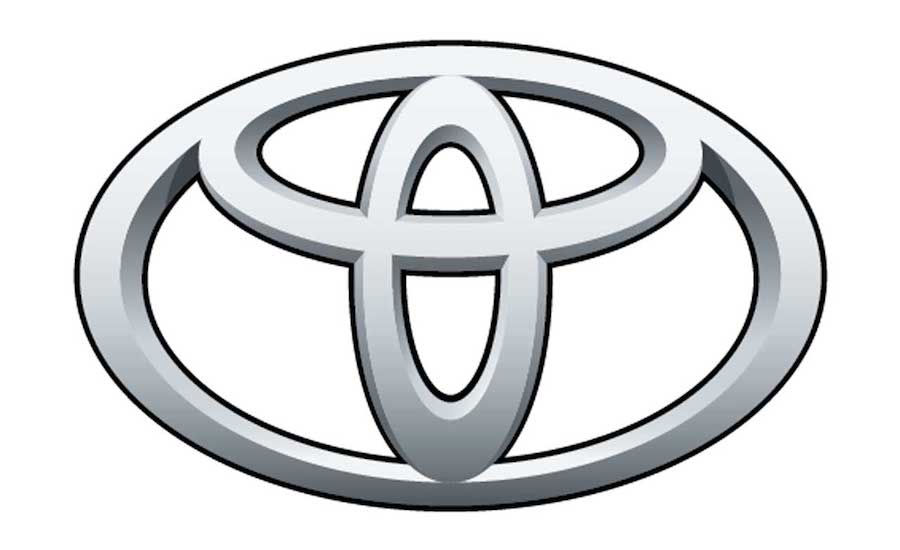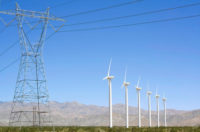Toyota Motor Corp. is the most recent company to move a critical part of its supply chain to the U.S. from an offshore site, choosing North Carolina as the location for a $1.29-billion battery manufacturing plant for its electric vehicles, following a decision by Ford Motor Co.. and its Korean battery partner SK Innovations, to build a similar plant in Georgia.
The facility will be Toyota's first battery plant in North America. It will support the firm's 14 auto manufacturing plants in the U.S. and Canada.
Toyota’s batteries are currently built in Japan and China, company spokesman Aaron Fowles told ENR. The new batteries will be used at Toyota’s 10 U.S. automotive plants so the critical component will be close to vehicle production, he said. The company uses its own battery technology.
The plant, to be built at the 1,800-acre Greensboro-Randolph Megasite on the border of Randolph and Greensboro counties, will have four production lines when it comes online in 2025—each line capable of delivering enough lithium-ion batteries for 200,000 vehicles. Another two production lines will be added at an undisclosed time and eventually will generate battery production for 1.2 million vehicles per year.
The project is part of a $3.4 billion investment in the U.S. for auto battery development that Toyota announced in October.
Toyota did not provide information on companies selected to design and build the plant.
“The future of mobility is electrification and the Greensboro-Randolph Megasite is the ideal location to make that future a reality,” said Ted Ogawa, CEO of Toyota Motor North America. One factor in selecting the site was its access to renewable energy. Toyota is committed to using 100% renewable energy at the battery plant, the company said.
The pandemic spurred the trend to move manufacturing to the U.S., Harry Moser, president of the Reshoring Initiative told ENR. “Reshoring and foreign direct investment grew from 6,000 jobs in 2010 to 160,000 jobs in 2020, with more than 220,000 expected in 2021, the highest yearly rate ever,” he says. The average capital investment for each new job is $1 million, Moser says.
About 1,800 companies, both foreign and domestic, in 2021 plan to establish additional manufacturing in the U.S, with the number of U.S. companies returning manufacturing to their home market outpacing foreign direct investment by 24%, the Reshoring Initiative says.
A survey by Area Development magazine found that 22% of auto industry CFOs plan to bring back manufacturing plants to the U.S. “The largest driving force is companies realizing the cost and risks of offshoring,” Moser says, with the trend also driven by U.S.-China geopolitics, he says, noting that some companies fear China will refuse to ship parts to the U.S.
Auto industry jobs that are returning to the U.S.are largely related to the manufacture of electric vehicle battery production, the reshoring group says. But it’s not without controversy.
The Biden Administration proposes to give an extra $4,500 electric vehicle tax credit to union-made vehicles in the U.S., prompting an outcry from vehicle manufacturers abroad.
The European Union and others said the union-based tax credit would violate international trade rules and undermine the efforts of foreign producers to expand the U.S. electric vehicle market, and would undercut the administration’s climate goals.
While Toyota Motor North America, based in Plano, Texas, considers itself a U.S. company, it says the additional tax credit for union-made vehicles by Ford, GM and Chrysler sends the message that having more electric vehicles on the road is secondary to promoting unionization.
“Let the American consumer choose the best electric vehicle and let’s make fighting climate change the priority,” the company said in a statement.
Cody Lusk, CEO of the American International Automobile Dealers Association says the $4,500 United Auto Workers-only tax credit is an insult to the 673,000 Americans who work for international manufacturers and dealerships.
Meanwhile, the Edison Electric Institute says more than 100,000 fast-charging ports for electric vehicles are needed to support the nearly 22 million of such vehicles that are expected on U.S. roads by 2030.
“Electric companies are investing more than $3 billion to deploy charging infrastructure and accelerate electric transportation,” says a group of more than 50 investor-owned electric companies that recently formed the National Electric Highway Coalition.






Post a comment to this article
Report Abusive Comment